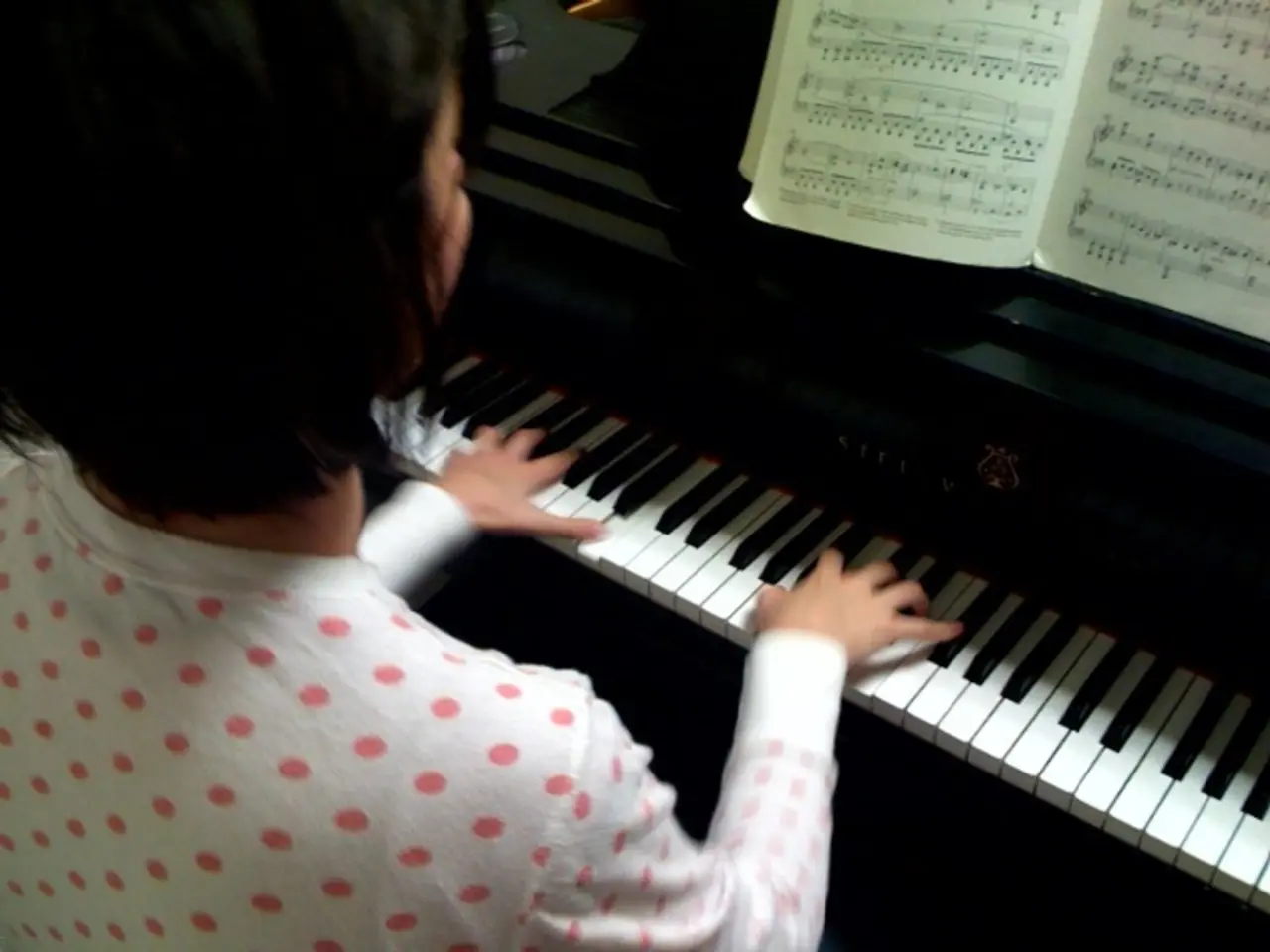Focused Piano Techniques: Strategies for Maintaining Awareness and Decreasing Tension
Mindfulness, a practice that focuses on being fully aware and present, can significantly improve the piano playing experience for beginners. By fostering physical awareness, reducing performance anxiety, and promoting focused, injury-free technique, mindfulness can help pianists make the most of their practice sessions.
One of the key benefits of mindfulness for beginner pianists is improved physical technique and injury prevention. By encouraging awareness of posture, tension, and gestures, mindfulness enables players to adopt a healthy piano technique that prevents strain and allows for freer, more expressive playing.
Another advantage is enhanced focus and concentration. Mindful attention aids in sustaining focus during practice, making learning more effective and reducing distractions that hinder progress. This focused practice leads to a more efficient learning process, helping beginners to progress faster.
Reduced anxiety and better performance is another benefit that mindfulness offers. Techniques such as mindful breathing help beginners manage nerves when playing for others or themselves, creating a calmer mind and more fluid playing. This reduction in anxiety can lead to a more enjoyable practice experience.
Mindfulness also fosters a holistic connection with the instrument. Awareness of breath, body movement, and sound production leads to a more embodied and expressive performance. This integration of mind and body in playing can lead to a deeper musical expression.
Compassion towards oneself is also important during piano practice. Practicing gratitude at the end of each piano session can help maintain a positive mindset and keep motivation high. Observing mistakes without judgment during piano practice can make the practice more peaceful and less stressful.
In addition, creating a comfortable and quiet space for practice helps focus. Hand, arm, and shoulder stretches can signal to the brain to focus on music. Taking breaks during challenging pieces or sections to breathe can help refocus and play with more clarity and enjoyment.
Journaling about piano sessions can help show how far you've come in your piano journey. Sitting up straight with feet flat on the ground and loose arms is recommended for piano practice. Good posture during piano practice makes playing easier, reduces tension, and prevents injuries.
For those interested in mindfulness practices, online psychic chats can provide spiritual recommendations. WKMT, a leader in piano education since 2010, offers exceptional piano lessons, both in-studio in London and online worldwide.
In conclusion, beginners who incorporate mindfulness into their piano practice can improve technical control, mental clarity, and emotional engagement, forming a strong foundation for musical growth.
- Mindful attention can aid in sustaining focus during piano practice, making learning more effective and reducing distractions that hinder progress.
- By encouraging awareness of posture, tension, and gestures, mindfulness enables players to adopt a healthy piano technique that prevents strain and allows for freer, more expressive playing.
- Techniques such as mindful breathing help beginners manage nerves when playing for others or themselves, creating a calmer mind and more fluid playing.
- Awareness of breath, body movement, and sound production leads to a more embodied and expressive performance, fostering a holistic connection with the instrument.
- Practicing gratitude at the end of each piano session can help maintain a positive mindset and keep motivation high, promoting personal growth.
- Observing mistakes without judgment during piano practice can make the practice more peaceful and less stressful, contributing to better mental health and mental clarity.




